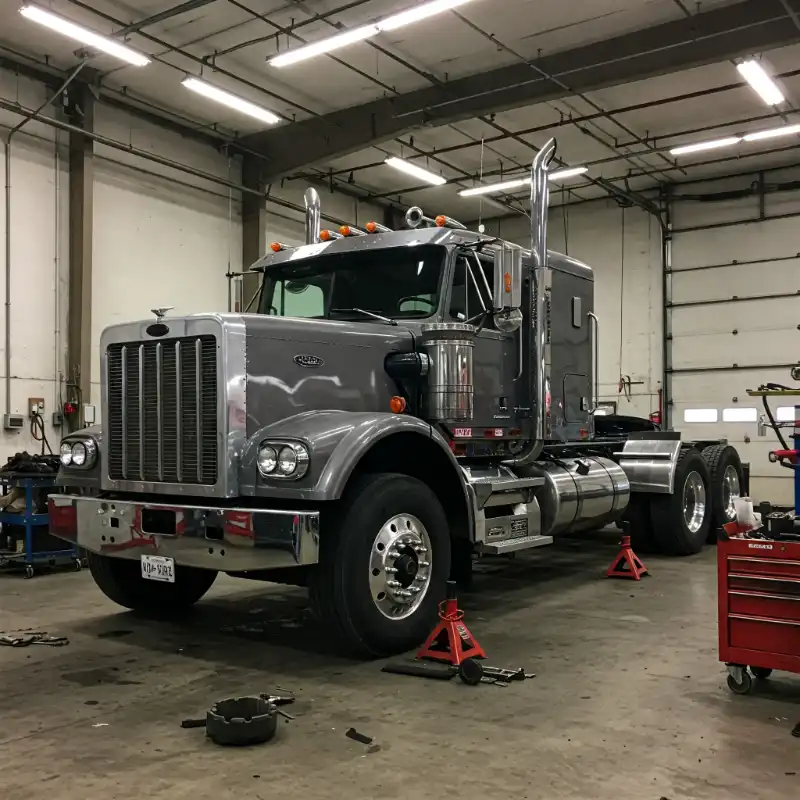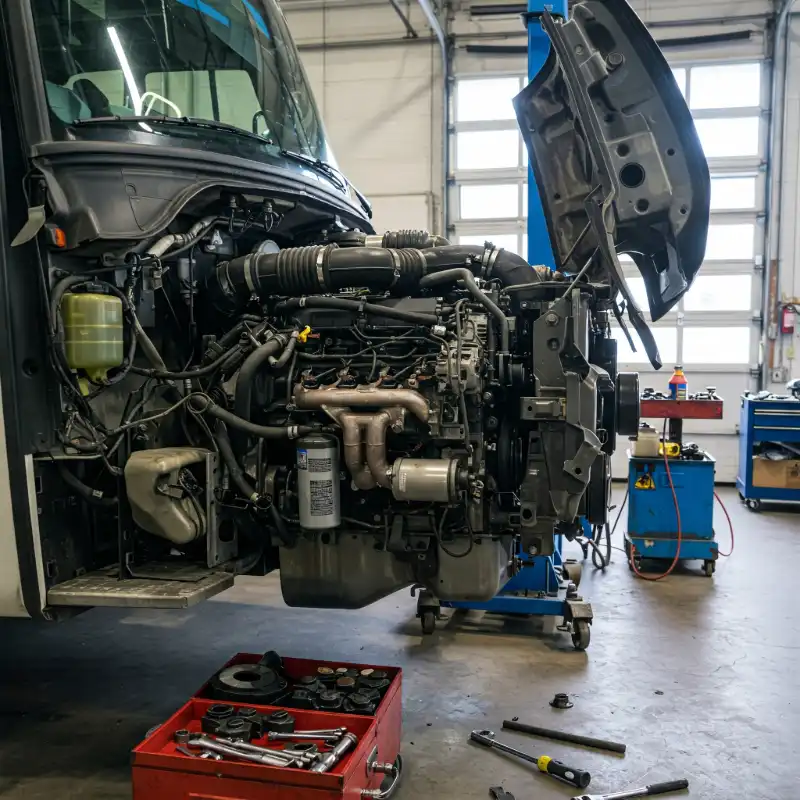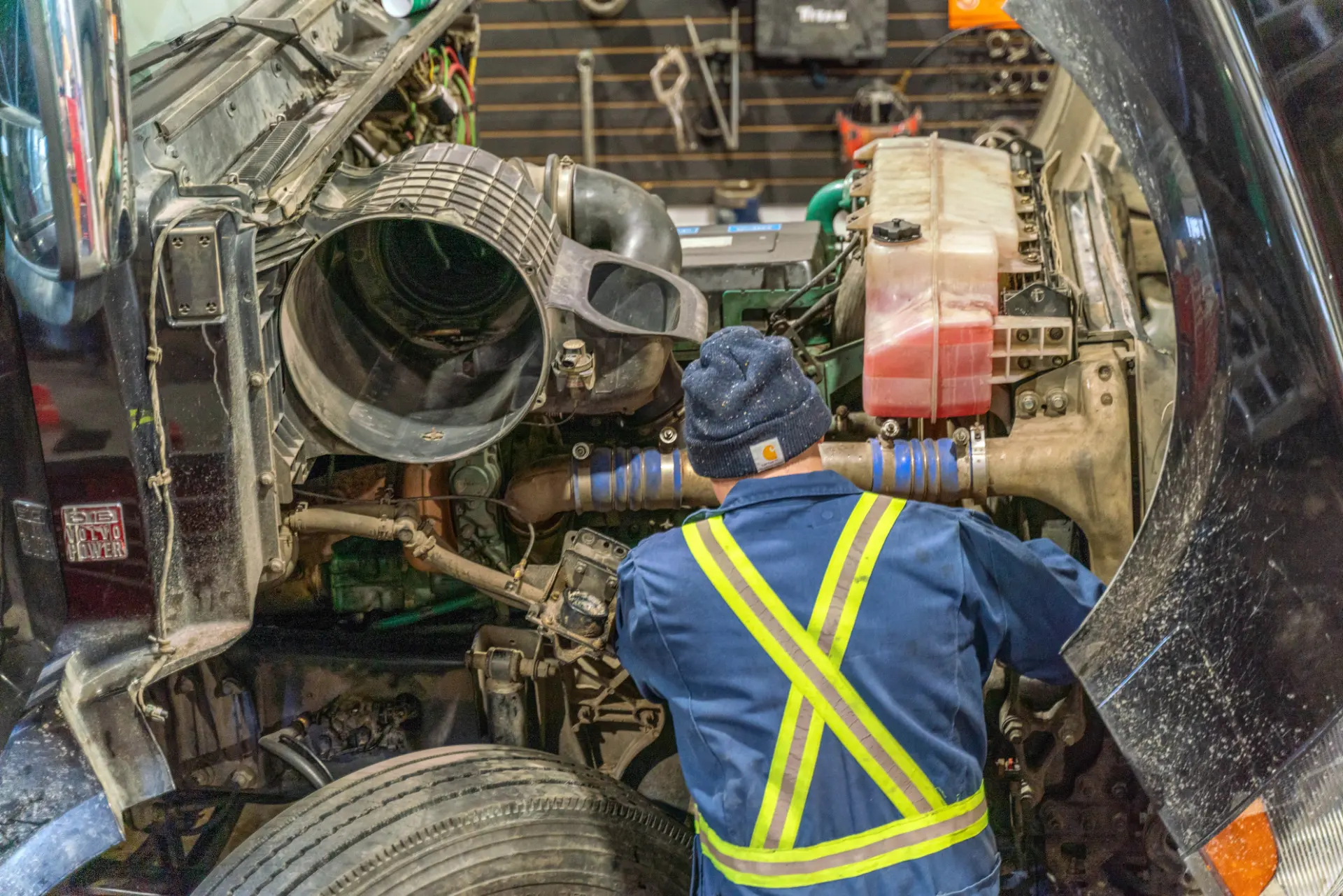Extend Heavy-Duty Truck Lifespan With Proper Engine Repair
Engine converts energy. Battery, starter crankshaft, camshaft move valves. Pistons follow, air, injectors, plugs ignite. Maintain for peak truck performance.

The engine’s purpose is to convert energy into mechanical force and motion. With the help of the battery and starter motor, the crankshaft spins and turns the camshaft pushing the valve in and out of each cylinder. The pistons also move up and down relative to the crankshaft movement. Air gets sucked into the engine, fuel injectors and glow plugs activate, and ignition occurs through compression. This complex component requires regular maintenance to keep your truck operating optimally.
Regular Oil Changes: More Than Just Routine
Engine oil isn’t just any fluid running through your truck. Oil’s the elixir that keeps friction at bay, ensures optimal temperatures and reduces wear and tear of components within the engine. Regular heavy-duty engine oil changes tick just one box in a maintenance checklist. Many elements affect how oil works with your engine. Oil loses effectiveness the longer it works, leading to reduced friction prevention. Contaminates may wiggle their way into the oil, damaging the longevity of your engine. Investing in occasional oil changes means investing in engine longevity.
Don’t wait too long between each oil change because the quality of your engine oil diminishes. But don’t act too soon since you may be overdoing it (and over-spending!). Striking that sweet spot in timing for oil changes is the key. Mechanics recommend regular oil changes as short as 3000 to 5000 miles. It extends your engine's lifespan and keeps your heavy-duty truck at peak performance. Here are signs that your engine needs an oil change:
Irregular Engine Noises
Noises aren’t strange regarding heavy-duty trucks, but unfamiliar sounds become worrisome. An oil change might be required if your engine creates knocking or grinding sounds. Do not ignore odd noises—the louder a component clanks, the more damage, and friction the system tanks.
Low Oil Levels
Be sure to check oil levels constantly. Low oil levels mean no lubrication. Don’t risk a breakdown when you don’t have to. Permanent engine damage or breakdowns may occur when driving with insufficient oil levels. If you smell burning, it may be a sign of an oil leak.
Oil Consistency
Check your oil consistency with a dipstick. Wait for the oil to cool down before peaking at the oil reservoir. After wiping the dipstick on a paper towel, yellow oil indicates it’s practically fresh. Darker oil isn’t a good sign for determining the oil’s health. Observe the viscousness. If your oil is thick and gritty, dirt and debris have infiltrated.
Cooling Systems: Preventing Overheating and Wear
Cooling systems are like refrigerators. Fridges regulate temperatures to ensure food stays at a safe and cold temperature. Cooling systems regulate heavy-duty systems like the engine to maintain optimal temperatures and prevent overheating. They hold the ideal temperature for the engine to avoid potential damage when it overworks itself. By circulating coolant, the system draws away excess heat from the engine.
Plugged Radiator
Over time, debris, sediment, and contaminants can accumulate within your radiator, causing blockages. These obstructions can compromise the radiator's efficiency, leading to insufficient cooling. Recognizing the symptoms early, like an overheating engine or decreased cabin heating, can save costly future repairs.
Damaged Water Pump
The water pump plays a pivotal role in circulating coolant throughout the engine. A damaged or malfunctioning water pump results in poor coolant flow, leading to overheating. Symptoms might include coolant leakage or a high-pitched whining sound.
Fan Clutch Failure
The fan clutch ensures that the engine receives optimal cooling during low-speed zones where natural airflow is insufficient. If it activates frequently or scarcely, your engine could overheat or consume more fuel than necessary.
Coolant Line Leakages
Coolant lines channel the coolant through the engine, which is integral in maintaining temperature balance. Leakages can result in inefficient coolant transfer. Signs to watch for include visible coolant spots or a sweet, antifreeze odor.
The Glow Plug
Imagine a cold morning, and your diesel engine needs some encouragement to start. Enter glow plugs. Instead of automotive spark plugs sparking an ignition, glow plugs warm up the combustion chamber. Their mission? To ensure the diesel engine starts up smoothly, even when temperatures drop. They heat the combustion chamber to encourage ignition. Having working glow plugs ensures winter startups for heavy-duty trucks. Glow plugs decrease the strain on the engine, minimizing damage and increasing engine longevity.
Contact Us
It’s important to leave lasting imprints on an engine. Care, expertise, and high-quality parts become essential when extending your engine's lifespan. At Fleetgo Heavy Duty Inc., our expert mechanics treat your heavy-duty truck like their own. With years of experience and OEM parts, Fleetgo is the only place to grow. Contact us today and extend your engine’s longevity.
More Articles

5 Common Issues Found During CVIP Inspections in Edmonton

Spring Driving Prep: What Your Car Needs After Winter

The Biggest Fleet Repair Mistakes Business Owners Make
Contact FleetGo
Get in touch with Fleetgo today to request a quote or to schedule in-shop or mobile services in Edmonton & the surrounding area! Our mobile service extends to a 100km radius around Edmonton for emergency roadside assistance & mobile truck & fleet repairs, including Sherwood Park, Spruce Grove, Fort Saskatchewan, St. Albert, Stony Plain, along Highway 16, & more!



